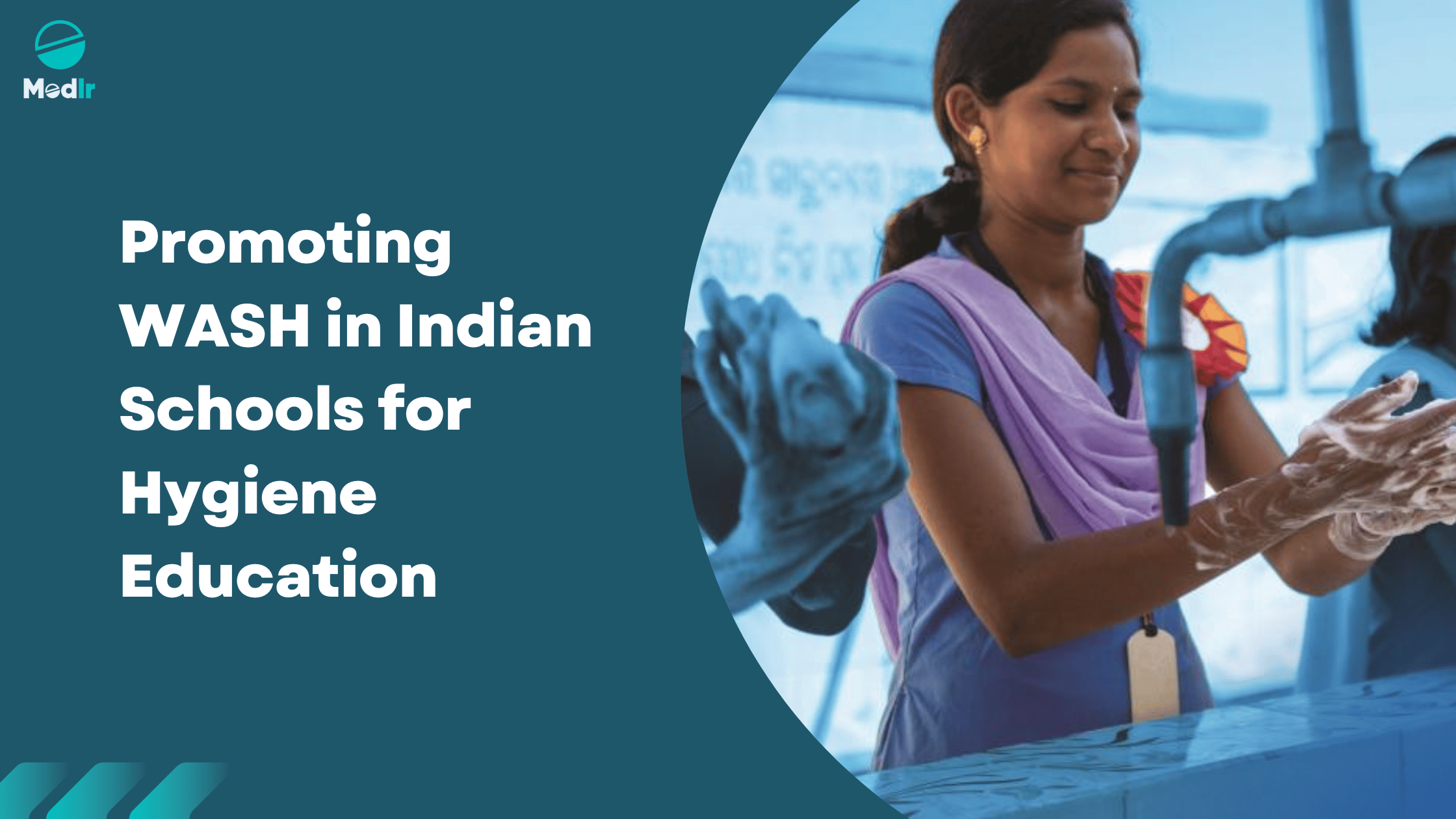Promoting WASH in Indian Schools for Hygiene Education
Written by Shaveta Arora, Arushi Sharma
Promoting WASH (Water, Sanitation, and Hygiene) in Indian schools is a vital initiative aimed at fostering a culture of cleanliness and health among the nation's youth.

The importance of WASH (Water, Sanitation, and Hygiene) in schools cannot be overstated in India's diverse landscape, where tradition and modernity coexist. WASH in Indian schools is critical to raising a healthier, more informed generation. This blog will delve into the critical aspects of hygiene education in Indian schools, highlighting the importance of handwashing and sanitation facilities, both of which are critical components of WASH.
In Indian schools, hygiene education is a cornerstone of a child's holistic development. It goes beyond textbook knowledge to instill lifelong habits that can protect one's health. As we investigate the role of hygiene education, it becomes clear that WASH initiatives should be viewed as a catalyst for transformative change rather than simply infrastructure development.
Schools prioritize handwashing as a crucial hygiene habit, equipping children with a powerful tool against diseases. Regular practices at critical times reduce infection risk, improving attendance and academic performance, thus promoting a healthy lifestyle for children.
Furthermore, the availability of sanitation facilities in Indian schools is a critical aspect of WASH. Adequate and well-maintained toilets ensure privacy, dignity, and safety for students, especially girls. They create an environment where children can focus on their education without concerns about basic needs.
In this blog, we will discuss how promoting WASH in Indian schools can yield far-reaching benefits. It not only fosters healthier individuals but also empowers future generations with the knowledge and practices necessary to build a cleaner, more hygienic, and prosperous India.
WASH in Indian Schools is A Necessity
WASH in Indian schools is not just a mere requirement; it's a fundamental right of every child. It encompasses access to clean water, hygienic sanitation facilities, and education on proper hygiene practices. This holistic approach to health and wellbeing ensures that children receive more than just classroom education; they acquire essential life skills.
Hygiene Education in Indian Schools
Hygiene education in Indian schools goes beyond textbooks. It instills habits that can protect children from diseases throughout their lives. It empowers them with the knowledge to safeguard their health and the health of their communities.
Handwashing is The First Line of Defense
Handwashing is at the forefront of hygiene education in Indian schools. Teaching children to wash their hands regularly, especially before meals and after using the restroom, is a simple yet powerful preventive measure. It can significantly reduce the spread of diseases, leading to improved attendance and better academic performance.
Sanitation Facilities in Indian Schools
Access to proper sanitation facilities in Indian schools is non-negotiable. Clean, well-maintained toilets ensure privacy, dignity, and safety, especially for female students. Such facilities create an environment where children can focus on their studies without worrying about basic needs.
Promoting WASH in Indian schools is not just a matter of health; it's an investment in the future. It equips children with essential life skills and creates a healthier, more prosperous India. By emphasizing hygiene education, handwashing, and proper sanitation facilities, we are nurturing a generation of informed, responsible, and healthy citizens.
FAQs
Q - Why is handwashing so crucial in Indian schools?
Handwashing is crucial because it's a cost-effective way to prevent the spread of diseases. It reduces absenteeism due to illness and creates a healthier school environment.
Q - What are the benefits of WASH in Indian schools beyond health?
WASH programs promote dignity, safety, and gender equality. They also contribute to improved school attendance and academic performance.
Q ‐ How can schools ensure the sustainability of sanitation facilities?
Schools can ensure sustainability by involving the community, conducting regular maintenance, and educating students on proper facility usage.
Q - What role can parents play in promoting WASH in schools?
Parents can support WASH by reinforcing hygiene habits at home, advocating for better school facilities, and participating in school WASH committees.
Q - Are there government initiatives to promote WASH in Indian schools?
Yes, various government programs aim to improve WASH infrastructure in schools, such as the Swachh Bharat Abhiyan, which focuses on sanitation and hygiene.